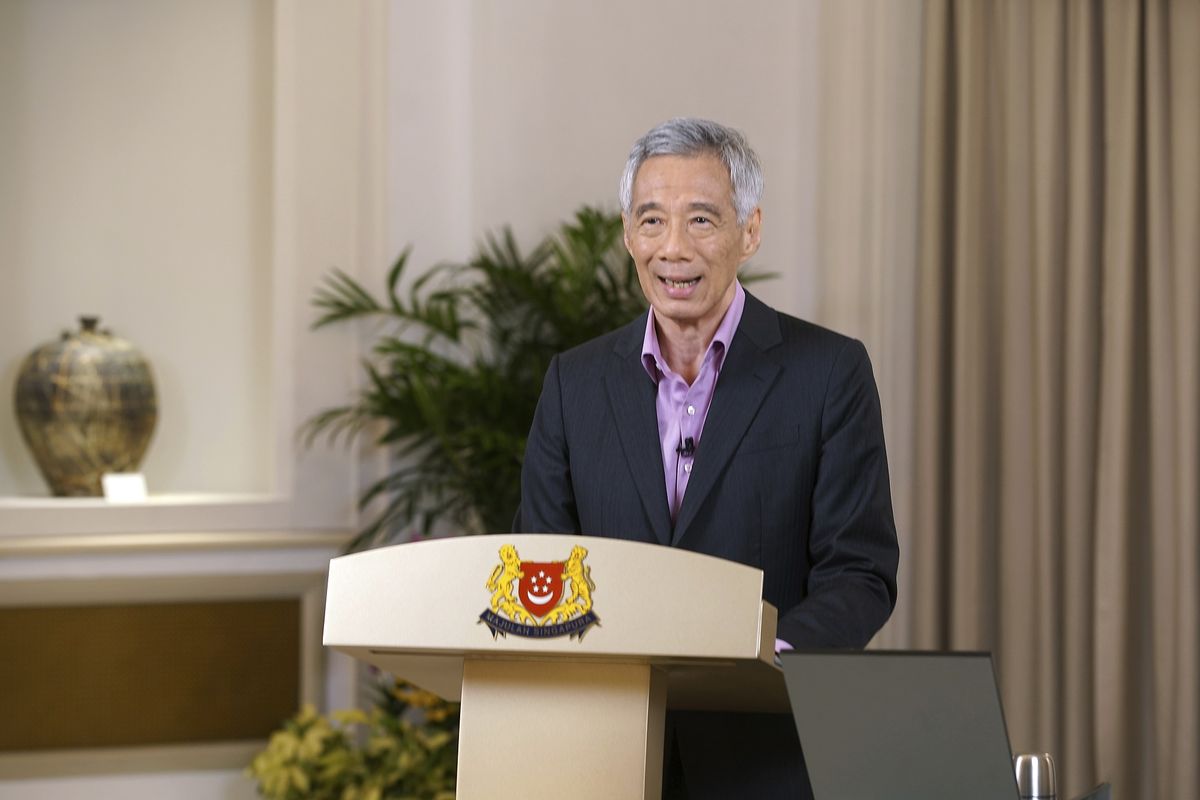
KOMPAS.com - Singapore is moving to vaccinate students against Covid-19 after a spate of transmissions in schools and learning centers.
The city-state is among the first countries in the world to offer vaccines to teenagers before completing the inoculation of adults.
It comes as a sharp rise in coronavirus cases blamed on new variants in other South-East Asian countries prompts new restrictions, factory closures, and attempts to rapidly scale up vaccination programs across the region.
Only wealthy Singapore has comparable vaccination rates to Western countries, with more than 36 percent getting at least one injection, but the appearance of cases from new variants there also prompted new closures last month.
Also read: Singapore Mulls Reopening Borders by Year-End, Says Singapore PM
Prime Minister Lee Hsien Loong said on Monday, May 31 that efforts aimed at curbing coronavirus infections were working. As a result, he said, a ban on dining out and severe limits on social gatherings would be relaxed after June 13.
"Barring another super-spreader or big cluster, we should be on track to bring this outbreak under control," Lee said.
The government imposed tighter controls in May after dozens of local coronavirus cases were linked to malls, hospitals, and the airport.
There had been virtually none earlier in the year.
Nearly three-quarters of Singapore's 760,000 senior citizens have received at least one dose of the vaccine or booked their appointments.
Also read: Indonesia, Singapore Form Travel Bubble for Essential Trips amid Covid-19 Pandemic
Now the shots — which have been offered to those aged 40 and older — are being extended to students above the age of 12 from today.
Lee said health authorities would take advantage of the June school holidays to vaccinate students.
"After the students, we will vaccinate the final remaining group, young adults 39 years and younger," he said.
New variants wreak havoc
Meanwhile, the number of daily new Covid-19 cases in Malaysia has soared past India's on a per capita basis, while total cases in Thailand, Vietnam, Cambodia, Laos, and Timor Leste all more than doubled last month.
Thailand's death toll grew 10-fold over two months — though at just over 1,000, was still low by global standards.
Adding to concerns, Vietnamese officials revealed the discovery over the weekend of a "very dangerous" combination of Indian and UK Covid-19 variants, which spreads quickly by air.
"Covid-19 infection rates are very alarming in countries across South-East Asia," Alexander Matheou, Asia Pacific director for the International Federation of Red Cross and Red Crescent Societies, told Reuters.
Also read: Badminton Singapore Open 2021 Canceled over Covid-19
The Philippines recorded its highest number of daily infections in four weeks on Friday.
Indonesia's seven-day average of new cases reached its highest in more than two months on Sunday.
A surge of cases has also been reported near Myanmar's India border — raising concerns about a health system that has collapsed since the February 1 coup.
In the absence of vaccines, containment is the priority.
Vietnam crushed earlier waves — and the country of 98 million has still suffered fewer than 50 deaths — but new distancing measures started in its business hub Ho Chi Minh City on Monday.
In the north of the country, factories supplying global tech firms such as Apple and Samsung are operating below capacity because of outbreaks, industry sources said.
Thailand's largest agribusiness, Charoen Pokphand Foods, closed a poultry factory for five days after workers tested positive for Covid-19. Thousands of more cases have been found at factories, construction sites, and prisons.
As Malaysia ordered a "total lockdown" from today to stem the spread, officials said some factories could keep operating at reduced capacity.
Health officials are also watching closely for any resurgence in Indonesia and the Philippines, the region's two most populous countries, which were both hit hard by the pandemic last year.
Slow vaccination rates
Malaysia has tried to step up its vaccination campaign, but fewer than six percent of people have received at least one dose of a vaccine — barely half the proportion in India.
Some South-East Asian countries had placed less emphasis on vaccine procurement than Western countries or simply could not afford them and now have limited access.
"With a smaller segment of the population that is protected from vaccination, the vast majority of the population remains susceptible," said Teo Yik Ying, dean of the Saw Swee Hock School of Public Health at the National University of Singapore.
ABC/wires
Simak breaking news dan berita pilihan kami langsung di ponselmu. Pilih saluran andalanmu akses berita Kompas.com WhatsApp Channel : https://www.whatsapp.com/channel/0029VaFPbedBPzjZrk13HO3D. Pastikan kamu sudah install aplikasi WhatsApp ya.































